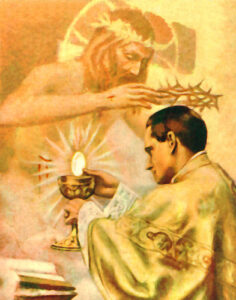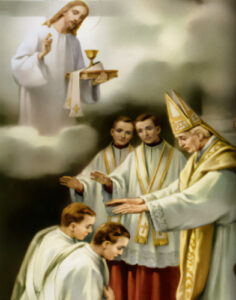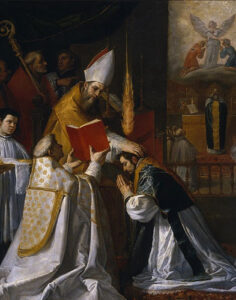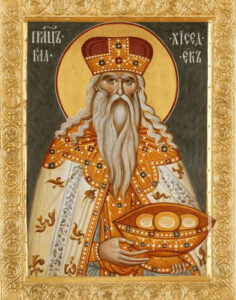Monday of the 25th Week of Ordinary Time – Lk 8:16-18
In today’s brief Gospel, Jesus gives us a great deal to think about. We can break the Gospel into two parts: first, the analogy of the lamp and the light, and, second, the discourse about hidden things being made visible and the need to be attentive.
Regarding the first, we can think of the lamp as God’s love dwelling within us, and the light that it produces as its effects which reveals God’s love to us and to the world. As one author puts it: “Just as God dwells in [an unapproachable] light from which flows every ray that illuminates the world . . . so love dwells in hiding or is hidden in the innermost being. . . . Yet this hidden life of love is recognizable by its fruits.”[1] As religious, we are highly visible in the world, but even Catholics, and increasingly so, are standing out and becoming more visible; called apart by God’s love, which is invisible, we stand out, and by that very fact we shed light on the world, pointing them back to the Eternal Source of Light and Love.
However, we could also say that Christ tells us that this light penetrates within us. It’s not simply something that extends outside; God’s love is the measure of everything, ourselves included, and it penetrates into the hidden depths of our souls. In a beautiful passage from the Confessions, Saint Augustine speaks of how this love sees everything. He writes: “Let me know you, O you who know me; then shall I know even as I am known. . . . The abyss of the human conscience lies naked to your eyes, O Lord, so would anything be secret even if I were unwilling to confess to you? I would be hiding you from myself, but not myself from you. . . . To you, then, Lord, I lie exposed, exactly as I am.” It’s for this reason that this doctor of the Church begs God for mercy and to show him his defects and failings: “Let me, then, confess what I know about myself, and confess too what I do not know, because what I know of myself I know only because you shed light on me, and what I do not know I shall remain ignorant about until my darkness becomes like bright noon before your face.”[2] In other words, what I know about myself, I know only because God has shed His light on it. Self-knowledge is a grace. This includes my sins and failings, which are far more hurtful to God than we could ever know, my weaknesses and shortcoming, which the devil uses to tempt me. It also includes my gifts and talents, that God wants to make use of. All of this knowledge, however, only comes to us when we work with God’s light, and let His love illumine us. If we turn away from that light, the little love and knowledge that we have will be swept away by our pride and stubbornness. If we turn towards the light, we will have to come to terms with our failings and defects, but we’ll also be the more certain of God’s love and grace, which called us to this life, and provides us with what we need to continue walking the paths of holiness. We can apply Christ’s words to Nicodemus to ourselves: “And this is the verdict, that the light came into the world, but people preferred darkness to light, because their works were evil. For everyone who does wicked things hates the light and does not come toward the light, so that his works might not be exposed. But whoever lives the truth comes to the light, so that his works may be clearly seen as done in God” (Jn 3:19-21). The choice is ours: do we turn towards the light, and face all of our limitations and failings and learn of the greatness of God’s love, or do we turn away, and prefer the darkness, which is perhaps more comfortable for a time, but not the path of saints?
Today, let us ask, through the intercession of Mary, Mother of Light, for the grace to allow God’s light to shine upon us, illumine our darkness, and bring us to the eternal light of heaven.
[1] Søren Kierkegaard, Works of Love, Hong & Hong ed., 9-10.
[2] Saint Augustine, Confessions, Lib 10, 1, 1-2, 2; 5,7: CSEL 33, 226-227, 230-231.







